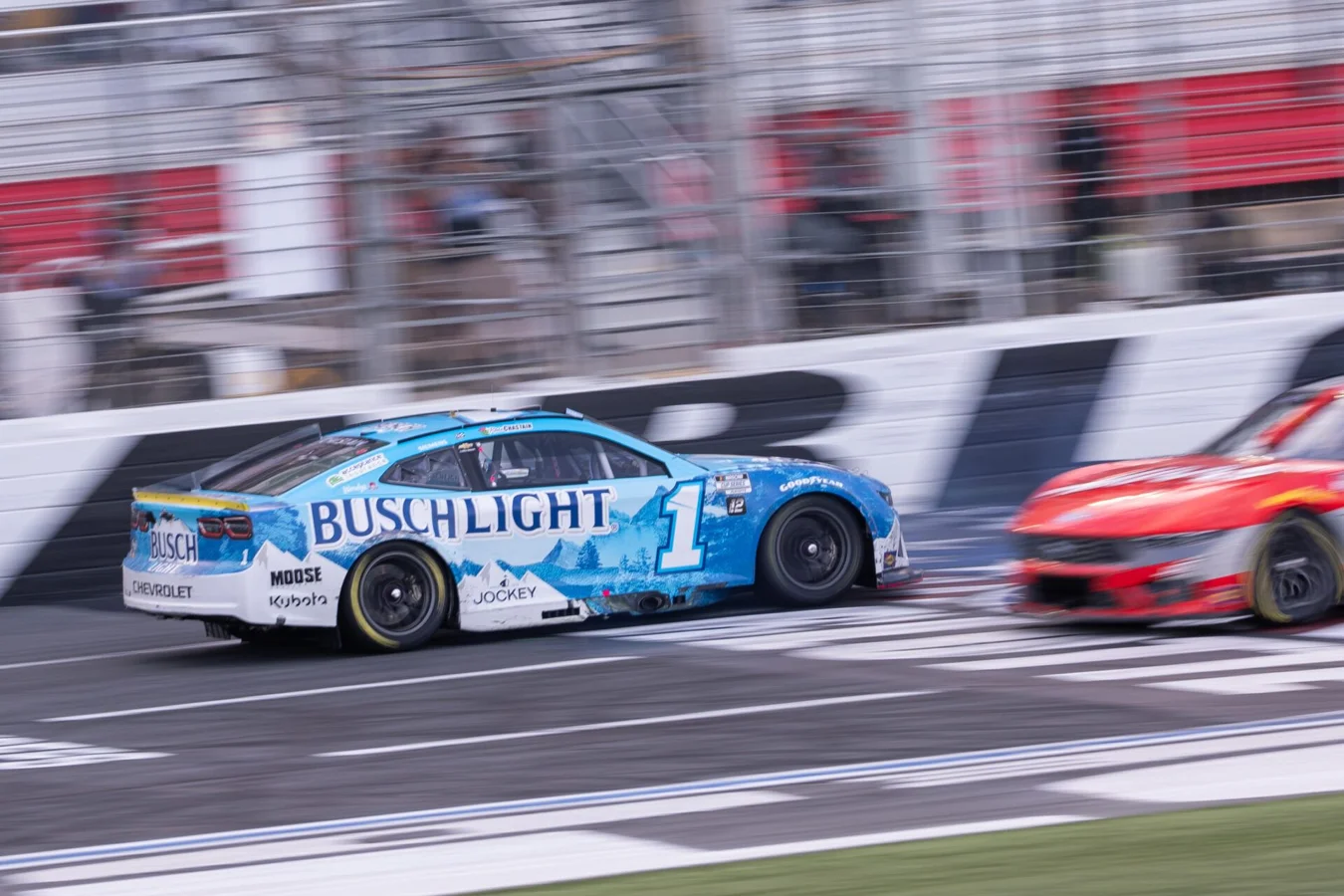The NASCAR Cup Series Round of 12 came to a dramatic close at Charlotte Motor Speedway’s Roval on Sunday, where Ross Chastain‘s actions fueled controversy and ended his own title hopes in the process. The incident highlighted Ross Chastain NASCAR playoff chaos, again raising urgent questions about the current state of NASCAR’s playoff system.
Chastain’s Final-Lap Collision Causes Uproar
In a tense finale at the Bank of America Roval 400, Chastain faced pressure to make up a four-point deficit behind Joey Logano as the playoff cutoff loomed. In the race’s closing moments, Chastain attempted an aggressive maneuver, ultimately colliding with Denny Hamlin in the final turn. Both drivers crashed into the barriers, with Chastain reversing across the finish line, creating a frenzied scene that ignited debate across the sport.
Chastain was quick to apologize following the incident, but the gesture did little to quiet concerns about the way NASCAR’s structure incentivizes high-stakes risks over clean competition. The collision was just the latest example of how playoff desperation, not calculated strategy, determines the final outcome for many drivers.
Controversy Over NASCAR’s Elimination Playoff Format
NASCAR’s elimination-style playoff system has intensified scrutiny from both industry insiders and fans alike. For much of the season, points are of little consequence to drivers, but as the playoffs progress, every position suddenly holds heightened importance. This dramatic spike in stakes encourages drivers to attempt maneuvers that would otherwise seem reckless or unacceptable during regular racing.
The pressure of elimination rounds forces even experienced racers like Chastain and Hamlin into desperate scenarios. What may once have been viewed as unsportsmanlike or dangerous conduct has now, under NASCAR’s format, become celebrated as playoff grit. Such last-ditch efforts have become a strategic survival tactic, turning the race’s climax into a frenzy where calculated veteran moves take a back seat to chaos.
Impact on the Sport and Its Fans
Longtime supporters of American motorsport find it increasingly difficult to recognize the racing they once cherished. The rise in last-lap showdowns and all-or-nothing strategies has left the community uneasy, with many expressing that the spectacle now resembles an online video game session rather than a contest of professional skill at venues like Charlotte Motor Speedway.
With drivers treating each other more as obstacles than competitors on the final lap, the spirit of fair racecraft—once central to the NASCAR Cup Series—has eroded. As seen at the Roval, the urge to survive at all costs now prevails over respect for fellow challengers. This is an issue not lost on those within the sport, as even Hamlin showed no visible anger toward Chastain, fully aware of the immense playoff stakes that drive such chaos.
Calls for Change as the Sport Faces Uncertain Future
The incident involving Ross Chastain and Denny Hamlin underscores a deeper problem with the playoff and elimination structure. It rewards aggressive antics and near-reckless moves, so long as they produce results, leaving smart and disciplined racing on the sidelines. NASCAR has hinted at possible reforms for 2026, acknowledging the growing unrest among both fans and participants.
Meanwhile, declining viewership further highlights the urgent need for a solution that restores balance—ensuring that races offer both thrilling moments and authentic, skill-based competition. The survival-at-all-costs mentality currently ruling playoff cutoff events like the Roval could threaten NASCAR’s broader appeal if left unchecked.
As the series advances with only eight drivers left in the hunt for the championship, the fallout from Charlotte serves both as a warning and as a defining moment for the future of American motorsport. Whether NASCAR can curb the chaos and recapture its foundational racing values remains to be seen, but changes seem increasingly inevitable.
